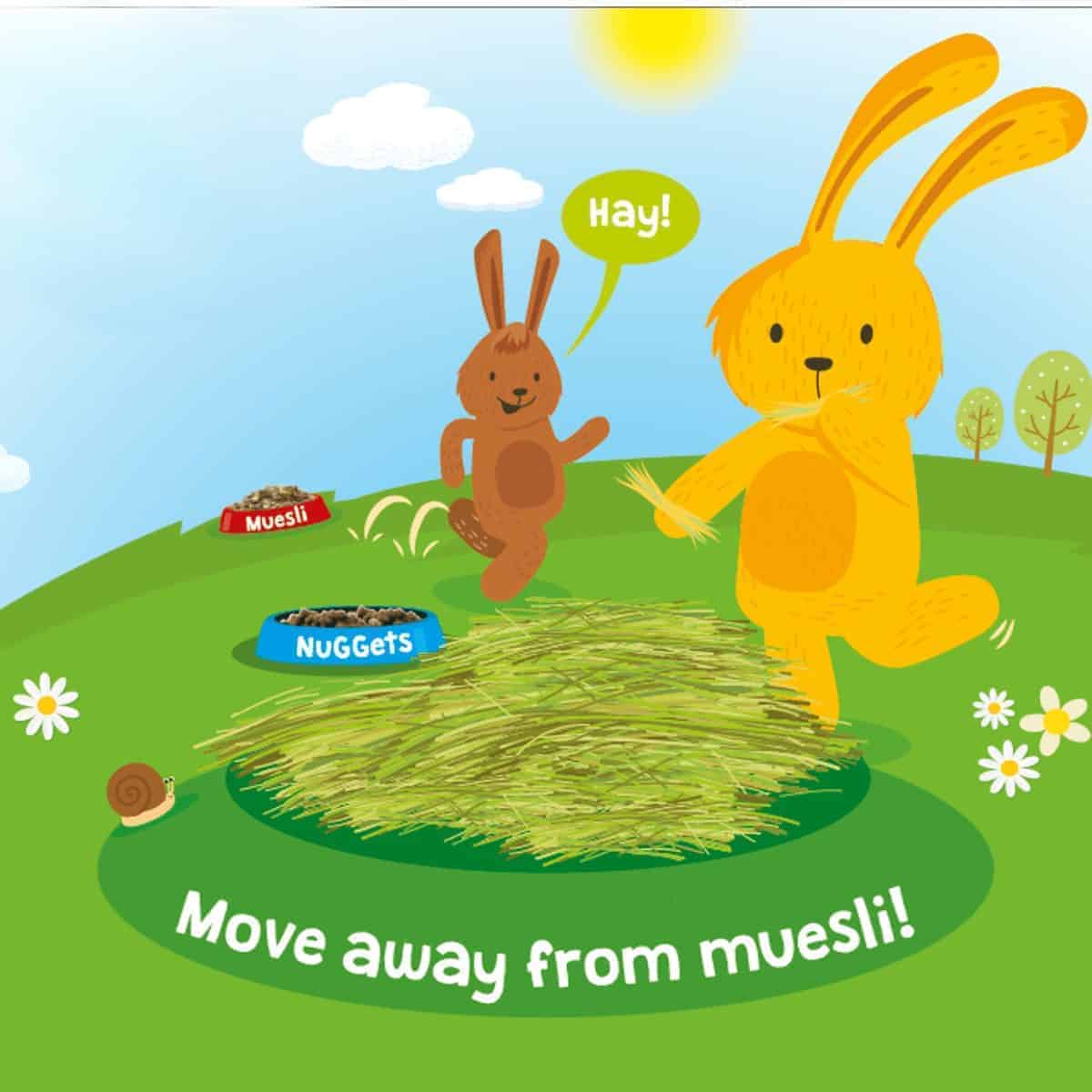
Muesli has the reputation of being a healthy, nutritious food for humans and the same approach has been used when marketing muesli-type foods for small pets. Unfortunately, the opposite is true. While pet owners may think they’re buying a nutritious mix of tasty nibbles, feeding a muesli mix to small pets such as rabbits and guinea pigs can result in all sorts of health problems.
Research undertaken by The University of Edinburgh reveals that muesli-based diets encourage selective feeding, where rabbits eat some (high starch/sugar) components of the muesli diet, while rejecting the more fibrous pellets. Selective feeding in this way increases the risk of:
- Dental disease
- Obesity
- Reduced faecal output potentially leading to gut stasis (a potentially deadly condition in which the digestive system slows down or stops completely)
- Uneaten caecotrophs (sticky droppings) potentially leading to flystrike (where flies lay eggs around a rabbit’s rear, which then hatch into maggots that eat into flesh)
All of these conditions are extremely damaging to rabbits’ health and welfare and can be fatal.
What’s more, according to the 2017 PDSA Animal Welfare (PAW) Report, 25% of owners still feed muesli. That’s around 280,000 rabbits in the UK who are being fed a harmful diet.
Move Away from Muesli
But the fight back for British bunnies has begun. The focus of this year’s annual Rabbit Awareness Week is to encourage all owners to ‘Move Away from Muesli’ towards a predominantly hay-based diet that includes some fresh vegetables and herbs and a small amount of pelleted food.
Burgess in-house vet Dr Charlotte Moyes says: “Around 85-90% of a rabbit’s diet should be high quality feeding hay and grass – that’s equal to their own body size in hay every day. Feeding hay is an excellent source of fibre, helps to maintain a healthy gut, reduces the risk of your rabbits getting tubby and serves to grind down their continuously growing teeth, helping prevent dental disease.”
Dr Moyes, along with the Rabbit Welfare Association, advise that the ideal bunny diet should consist of:
- 80% (at least) unlimited grass or high-quality feeding hay – not bedding hay, which may have poor nutritional value.
- 15% should be a variety of rabbit-safe leafy greens, vegetables and herbs such as carrot tops, cauliflower leaves, kale, mint, romaine lettuce, dandelion leaves, and leaves from hazel, willow or apple trees. Visit rabbitwelfare.co.uk for a list of recommended vegetables and herbs.
- 5% of pelleted rabbit food – which is about one egg cup a day. This ensures they get all the vitamins and minerals they need.
Show your support and sign our letter
If you’d like to help improve the health and wellbeing of the UK’s rabbits, please read and sign our letter. We’re inviting all owners, vets and pet shop retailers to join the Move Away from Muesli campaign by signing and sharing the message to encourage others.
Did you know? Rabbit Awareness Week is organised each year by a coalition of partners, including Burgess Pet Care, various vet bodies and charities including the RSPCA, RWAF (Rabbit Welfare Association & Fund), PDSA, Blue Cross and Wood Green – The Animals Charity. The partners all have one thing in common – putting animal welfare at the heart of everything we do. Each year, Rabbit Awareness Week focuses on highlighting one key welfare issue to help improve the lives of UK rabbits.
If you found this interesting, you might like:
Rabbits should eat a carrot a day and other bunny myths
Why the grass is always greener on the Burgess Excel side














